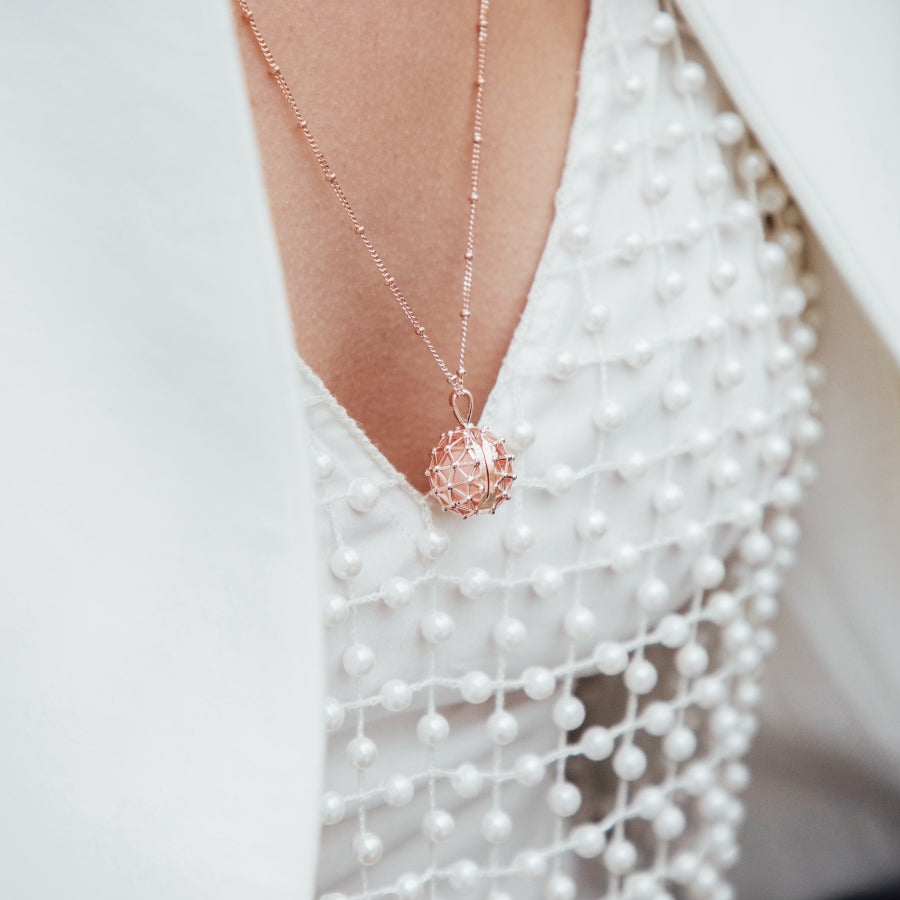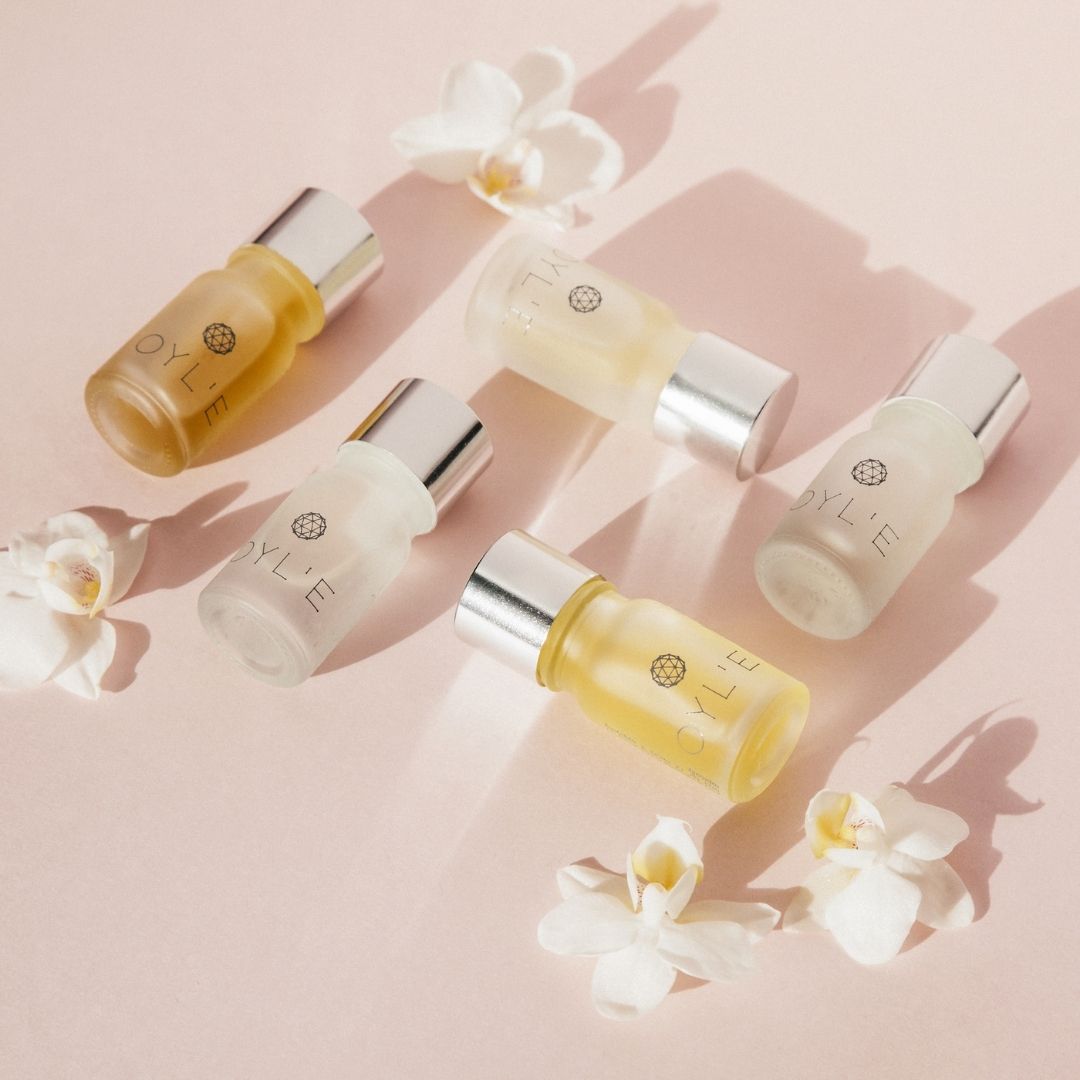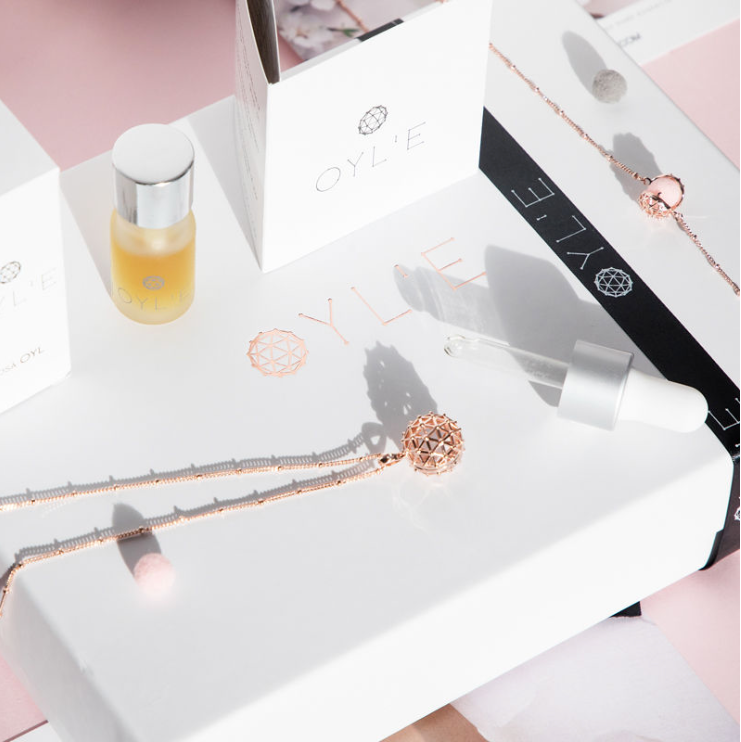
Jewellery
Select your jewellery
Choose from a selection of Silver, Rose Gold or Gold diffuser necklaces.

Aromatherapy
Essential Oil Blends
Pair your jewellery with blends that elevate mood or calm the senses.

Essential Oils Safety and Precautions
Inhalation
This technique helps to clear your head and nose. For adults, add 4–6 drops to a bowl of steaming water, pace a towel over your head and breathe. Children under 6 years old, adults with sensitive skin and asthmatics should not inhale directly.
Warnings: Do not use undiluted on the skin. For external use only. Avoid contact with the eyes. Keep out of reach of children. Flammable.
Phototoxicity
Citrus oils precautions - Such as those made from grapefruit, lemon or orange. As when applied to the skin, they can react with ultraviolet radiation from the sun to cause burns, rashes or skin discolouration.
Oils in bath water - Oil and water don’t mix, so undiluted drops could irritate the skin. You can, however, add diluted drops use 2 drops of oil to 1 ounce of liquid Castile soap or a carrier oil
Diluted oils can cause irritation, so always do a patch test: Rub the oil on a small area of skin and wait 24 hours to see if there’s any redness, swelling or rash. (If there is irritation, stop using the oil immediately.)
Avoid using synthetic oils, because the chemicals are more likely to cause side effects such as nausea or headache, skin irritation or breathing problems than more “pure” oils. Non-synthetic oils are typically more expensive than synthetics — around £10 to £25 per 5ml. You can spot them by looking for their Latin names on their labels, like “100 percent (Lavandula augustifolia)” Lavender oil.
You can gradually work your way up to creating a proper dilution in a carrier oil for topical applications ─ anywhere from 0.1 - 2%, depending on their age (once you are certain that your child has no allergies to that particular oil). Caution should always be exercised when combining oils to ensure the proper ratio of essential oil to carrier oil for topical applications or water to oil in a diffuser.
Store essential oils in a cool, dry place away from direct sunlight and out of the reach of children. You can keep them in the refrigerator too or place them back in the original box when not in use.
Keeping oils for no longer than a year as rancid oils are more likely to irritate the skin or trigger allergic reactions.
Pregnancy
Popular essential oils that should NOT be used during pregnancy, labor, or while breastfeeding:
- camphor
- parsley seed
- hyssop
- pennyroyal
- tarragon
- wintergreen
- wormwood
Oils that may be safe for you to use
As long as your pregnancy is going well, it's probably fine for you to use:
- neroli
- tangerine
- German and Roman chamomile
- common lavender
- peppermint
- ylang-ylang
Never leave a running diffuser and a child unattended; diffusion should only be done when you or another adult are present.
Essential oils to avoid for children in age groups.
12 years and under
- Wintergreen
- Eucalyptus globulus
- Eucalyptus radiata
- Marjoram (Spanish Type)
- Rosemary
5 years and under
- Star Anise
- Wintergreen
- Eucalyptus globulus
- Eucalyptus radiata
- Marjoram (Spanish Type)
- Rosemary
2 years and under
- Spike Lavender
- Hyssop
- Peppermint
- Camphor
- Star Anise
- Wintergreen
- Eucalyptus globulus
- Eucalyptus radiata
- Marjoram (Spanish Type)
- Rosemary
Stop using if you experience breathing or skin reaction from use.
-Open windows for ventilation-Apply olive or coconut oil liberally on part of the skin affected.
Always consult a certified aromatherapist or speak to your GP.
Subscribe to our emails
Join our email list for exclusive offers and the latest news.